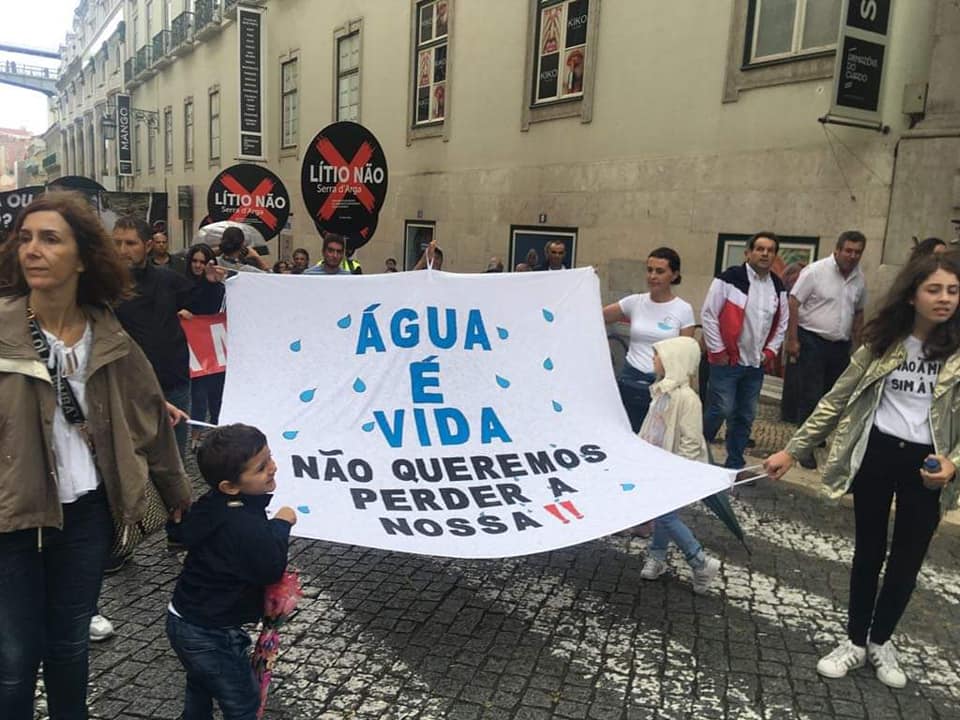Montalegre mayor insists mine “will not benefit municipality”, carry “very negative impacts” for water
Montalegre town council filed an injunction against the Portuguese Environment Agency (APA) in the wake of media reports on Operation Influencer.
The injunction sought suspension of the effectiveness of the Environmental Impact Statement issued by APA (in September 2023), regarding the project for lithium exploration championed by Lusorecursos Portugal Lithium – a company that made the news for having been in existence for only three days before winning its mining licence.
In the lawsuit, the municipality claimed that the Environmental Impact Statement made “a mockery of the impacts” of the project. But the judge disagreed, stressing that the construction phase “is still dependent on the procedure for bringing the execution project into conformity with the Environmental Impact Statement and, secondly, on a licensing act by the Directorate-General for Energy and Geology”.
The court, therefore, concluded that the “periculum in mora” (danger in delay) – one of the requirements for granting the injunction, had not been fulfilled, as there was no “well-founded fear of a situation of fait accompli, or of the production of damage that would be difficult to repair for the interests that the applicant seeks to secure in the main proceedings”.
The Romano mine in Montalegre – one of the projects that gave rise to the Operation Influencer investigation into alleged favouritism in the lithium business, and led to the resignation of the prime minister – obtained a favourable conditional Environmental Impact Statement from APA in September 2023, which imposed the allocation of royalties, compensatory measures for local populations and minimisation measures for the Iberian wolf.
The president of APA at the time has since resigned (again, in the wake of Operation Influencer).
Montalegre mayor Fátima Fernandes has never made any bones of the fact that she believes the Romano mine “will not benefit the municipality” in any way, shape or form. She has cited the “very negative” impact on the water of the Alto Rabagão dam – an asset “essential for public consumption, animal feed, and irrigation of the fields”; and she is concerned about the conservation efforts for the Iberian wolf, whose habitat will be seriously compromised by the construction of mining infrastructure.
Like numerous detractors in these mining processes, Ms Fernandes has “considered it nonsense to destroy nature in the name of the environment”, writes Lusa.
Montalegre has “a much bigger project”, she told journalists when she lodged the town council’s injunction – connected to the fact that it is part of a World Agricultural Heritage Site. “That’s what can project us into the future”.
But, this latest attempt for to scupper the mining concession signed on March 28, 2019, between the Directorate-General for Energy and Geology (DGEG) and Lusorecursos Portugal Lithium, does appear to have floundered, with the date mining is due to start still given as 2027.
Meantime, communities equally threatened by mining are still working hard to reverse the government’s intentions.
In Covas do Barroso a new protest camp (against the Barroso mine) is underway, while in the region taking in Seixoso and Vieiros, populations are already demanding that the government withdraw their areas from the new strategy outlined for the exploration of critical raw materials.
As in Montalegre, some of the most pressing concerns lie with possible contamination by the mining process of water courses, not to mention the heavy water-usage that mining implies. ND
Source material: LUSA/ Movimento Não às Minas – Montalegre




















